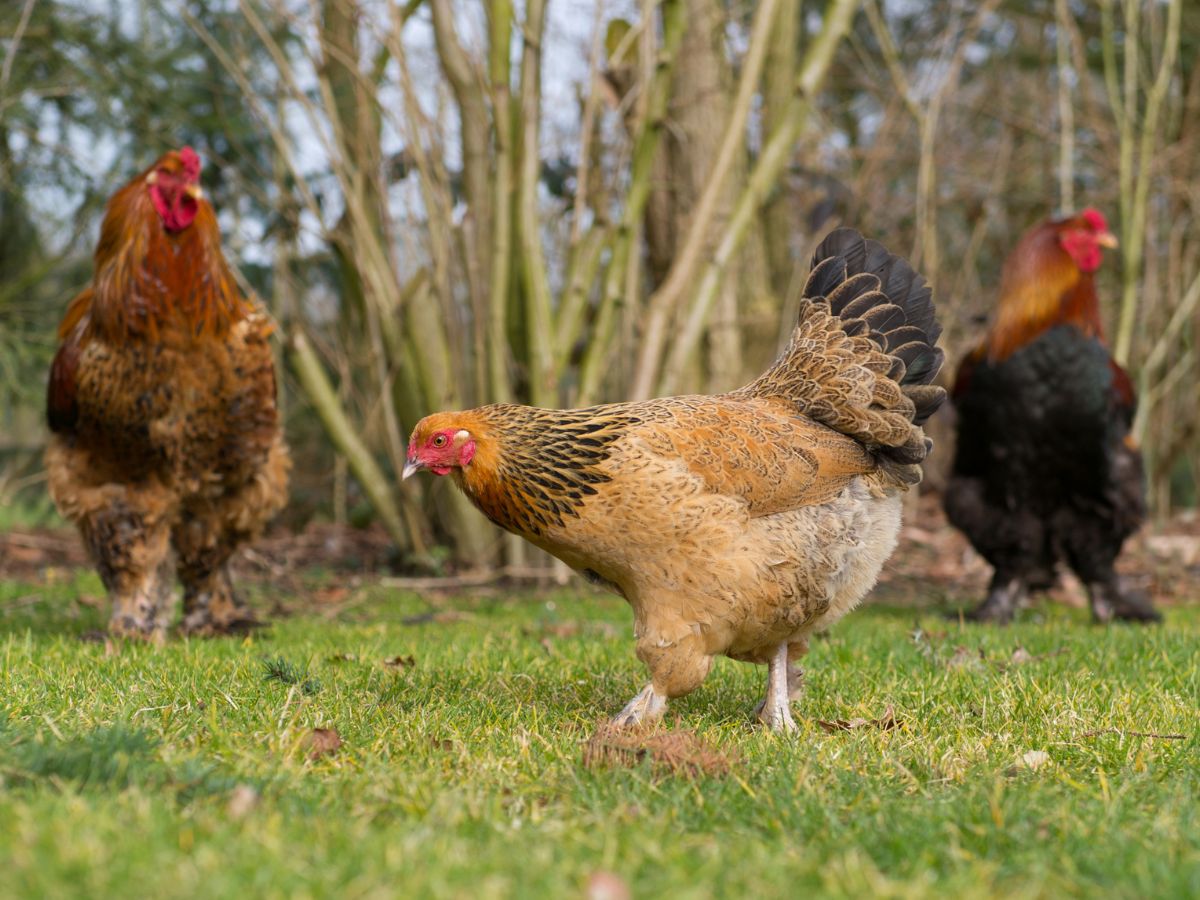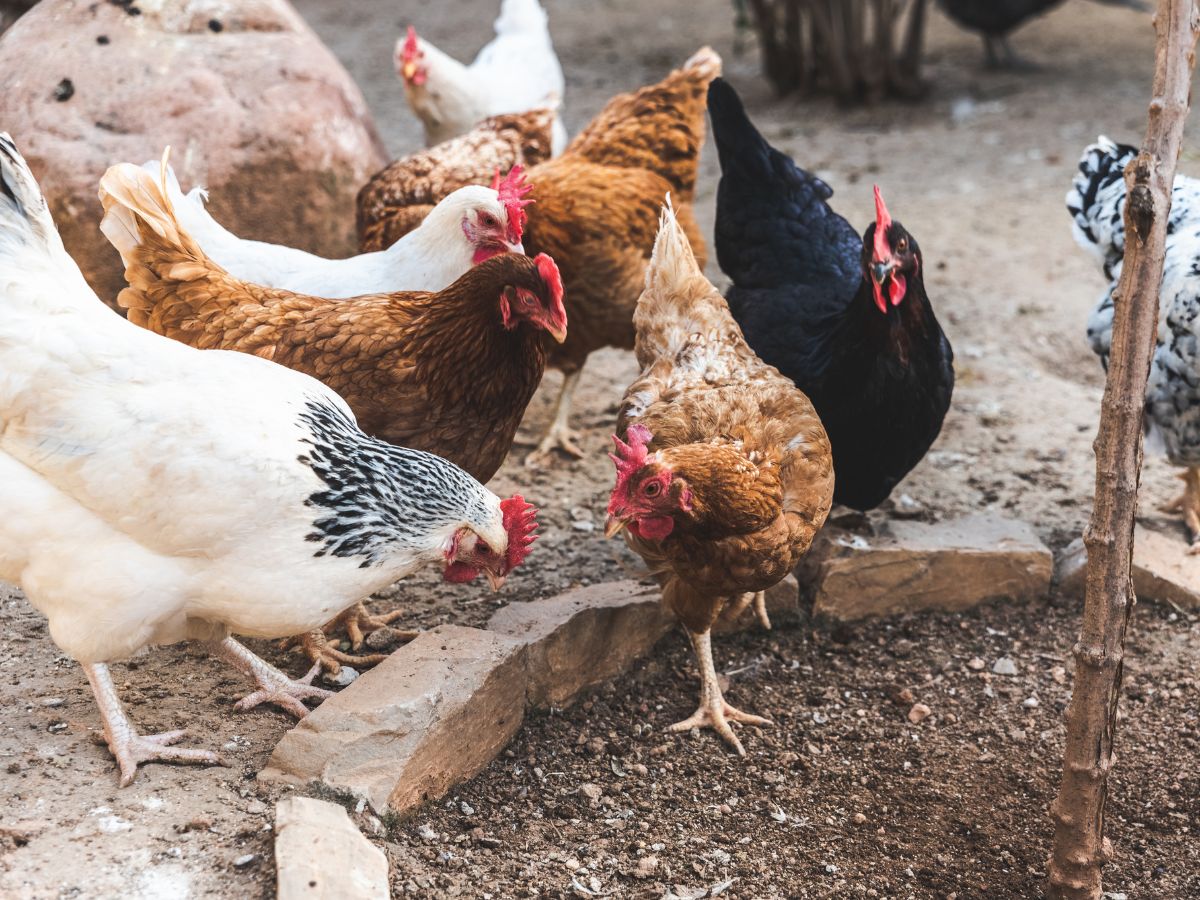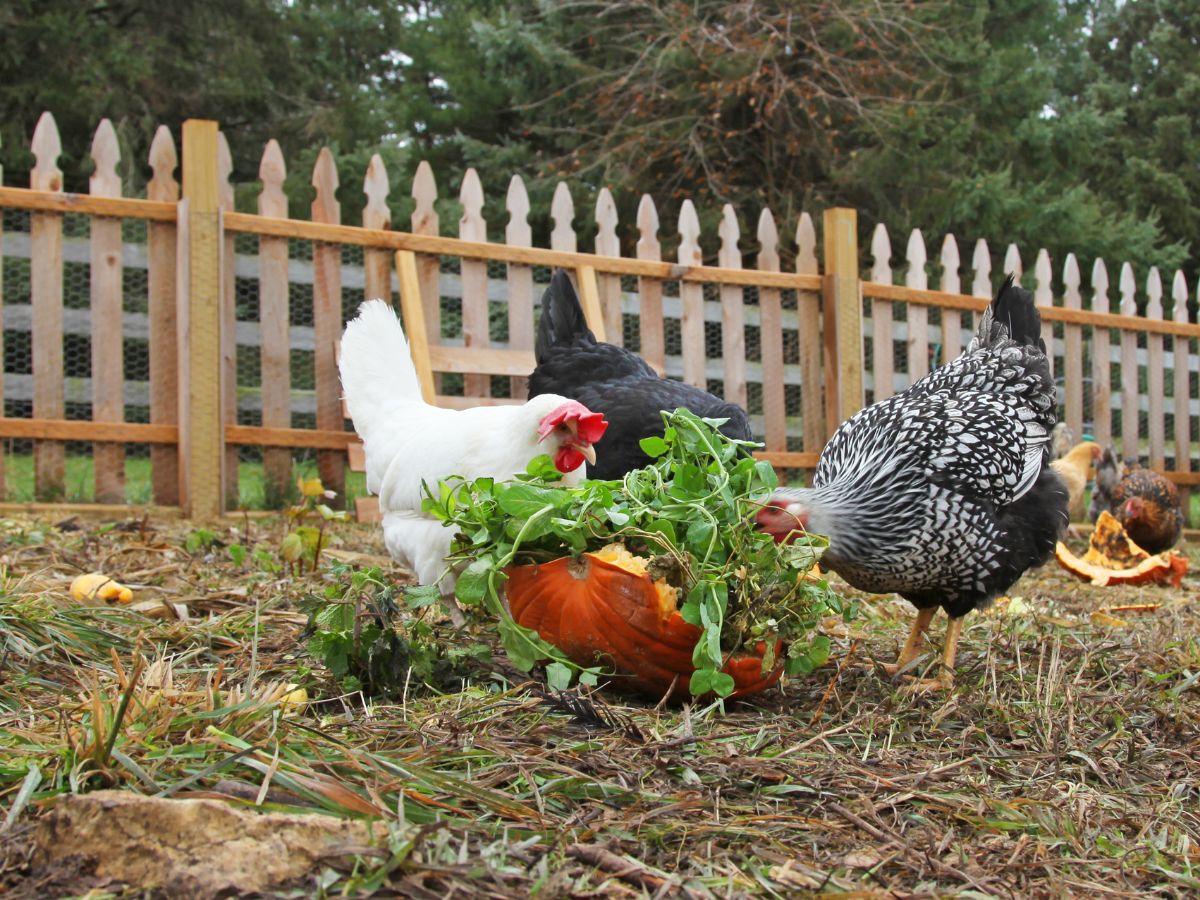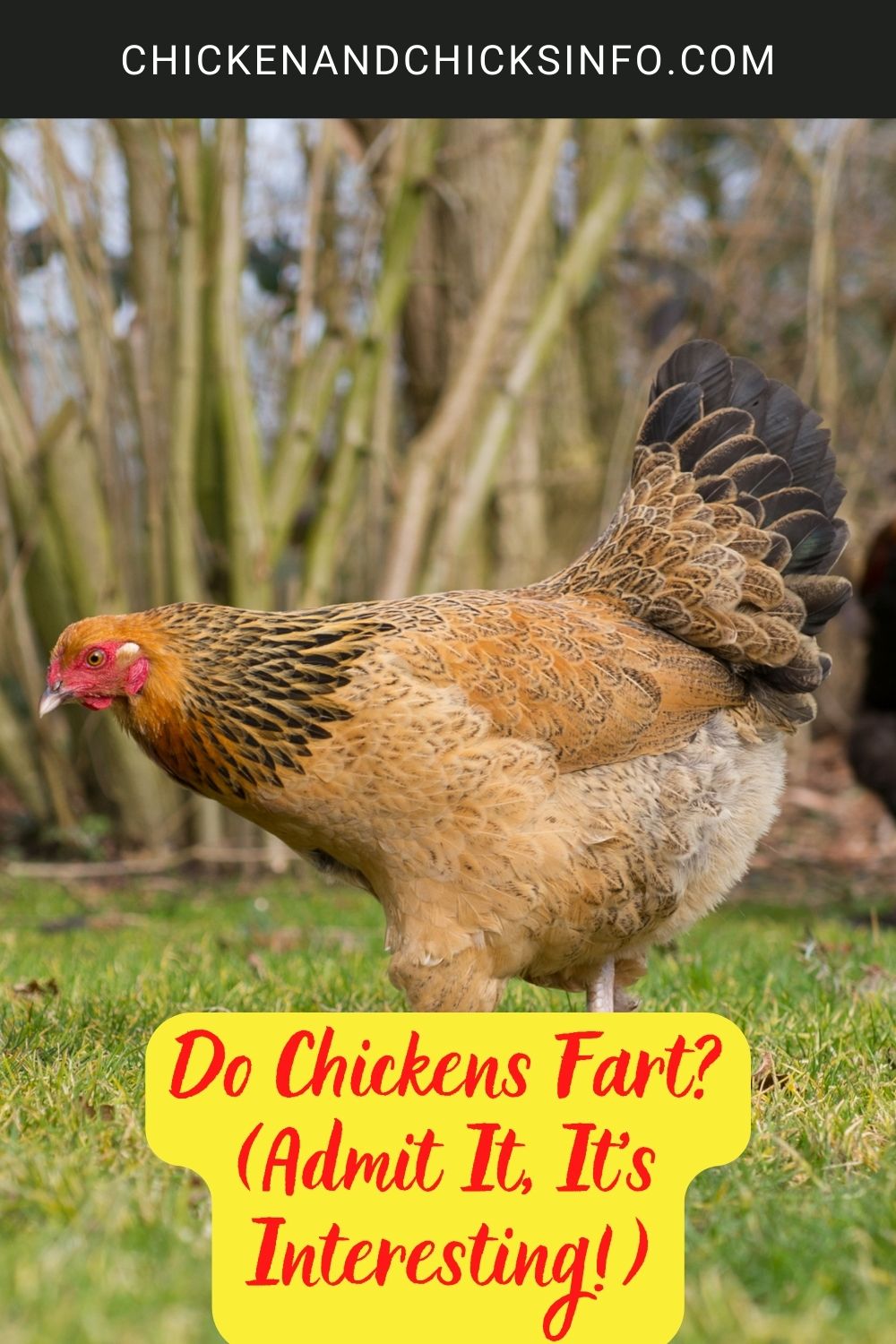
Be honest with me, and yourself - you’ve asked yourself or someone the question - do chickens fart? before.
Haven’t you?
Humans are curious by nature, you’re not the odd one out if you’ve found yourself looking into this topic.
Whether you think you’ve smelled something in the air in their coop, or you’re just looking at your chickens wondering how they function. It’s a fair question that deserves an answer.
Here is everything we know about chickens and farting, passing wind, dropping gas, burping, or however you feel comfortable referring to it:
Jump to:
Can Chickens Burp or Fart?
Chickens can burp and fart, yes.
They don’t do so in the same way as we do, however. For a chicken, a burp is an act of releasing gas through their mouth from their stomach. Farting is when they release the gas via their rectal vent.
They don’t generate as much gas as we do. But they do have intestines, so they will produce some gas. Chicks will also swallow air while eating and breathing which will need releasing too.
If you need evidence that chickens expel air from their rears when they have a dodgy tummy you might see some bubbles in their poop.
This is really getting down to the dark and dirty here, I know. The only other option is to be present when they pass wind. But nobody what’s to hang around for that.
Related content - How often do chickens poop?
Do Chickens Fart Methane?

Yes, the gas that chickens pass is made up of the same components as the farts we produce.
Just like us, when certain foods boost the bacteria in their guts, gas is produced. Foods with a high sulfur composition, such as plant-based proteins and dairy products are much more likely to cause flatulence.
The end result is the fermentation of gas in the gastrointestinal tract. A combination of hydrogen, carbon dioxide, and methane.
Do Chickens Farts Smell?
Yes, they do. By nature, the way gas is fermented in the gastrointestinal tract it’s going to smell no matter what animal is guilty of dropping it.
Talking about this with a few of my friends who own chickens however, it was met with a lot of blank stares and shrugs of the shoulders.
I don’t know anyone who can say that the smell of chicken gas is a problem. There are a few possible reasons for this;
- They were not aware that chickens passed wind
- With so many other odors in the backyard, it’s hard to tell
- They don’t spend enough time with their chooks in an enclosed space
- Toilet talk involving their flock is one step too far!
If you’re looking for an answer as to what a hen’s or rooster’s fart smells like, there isn’t one. Unless telling you it smells like a fart is good enough.
It’s fair to say it’s not pleasant. The mixture of methane and carbon dioxide is never going to smell nice. The smell affected by their diet too, just the same as with us.
Related content - Consider using lavender in your chickens’ coop for a fresher smell.
Does Diet Affect Flatulence?

There is almost nothing that scientists haven’t performed studies on, and this includes chickens passing gas and dietary effects.
Studies (source) have proven that there is a connection between a chicken’s diet and how bad their farts smell.
Scientists separated groups of chicks, fed them different diets, then measured the odor they produced. This really did happen!
In short, they found that the groups of birds fed canola seeds and soybeans were guilty of producing much more smelly gas.
The reason they chose canola is that it’s rich in sulfur and amino acids. We know that foods with organic-sulfur compounds, alcohols, and carbonyls are some of the worst offenders for producing bad odors.
While these two ingredients might not be on the feeding list for your chicks, it does prove there is a connection between diet and smelly flatulence. If you’re trying to combat a smelly coop, avoid foods that you think might be responsible.
In Summary
Hopefully, this article has helped you better understand the bodily functions of your chickens.
If coming to the realization that your well mannered and polite girls walk around dropping gas bombs has shocked you, you’ll get over it.
They are normal, functioning animals and have most of the same bodily functions as us. I admit they do have some big anatomical differences to us, just read do chickens pee? For one of them.
But as far as eating some foods rich in sulfur or plant-based proteins that cause a reaction in the intestines resulting in smelly gas goes - we’re both the same in that regard.





